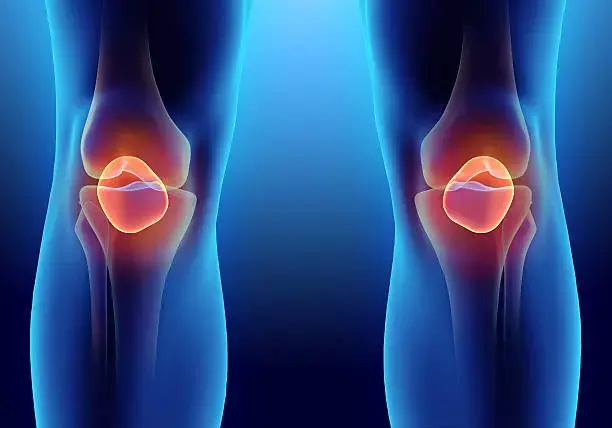- Home
- Medical news & Guidelines
- Anesthesiology
- Cardiology and CTVS
- Critical Care
- Dentistry
- Dermatology
- Diabetes and Endocrinology
- ENT
- Gastroenterology
- Medicine
- Nephrology
- Neurology
- Obstretics-Gynaecology
- Oncology
- Ophthalmology
- Orthopaedics
- Pediatrics-Neonatology
- Psychiatry
- Pulmonology
- Radiology
- Surgery
- Urology
- Laboratory Medicine
- Diet
- Nursing
- Paramedical
- Physiotherapy
- Health news
- Fact Check
- Bone Health Fact Check
- Brain Health Fact Check
- Cancer Related Fact Check
- Child Care Fact Check
- Dental and oral health fact check
- Diabetes and metabolic health fact check
- Diet and Nutrition Fact Check
- Eye and ENT Care Fact Check
- Fitness fact check
- Gut health fact check
- Heart health fact check
- Kidney health fact check
- Medical education fact check
- Men's health fact check
- Respiratory fact check
- Skin and hair care fact check
- Vaccine and Immunization fact check
- Women's health fact check
- AYUSH
- State News
- Andaman and Nicobar Islands
- Andhra Pradesh
- Arunachal Pradesh
- Assam
- Bihar
- Chandigarh
- Chattisgarh
- Dadra and Nagar Haveli
- Daman and Diu
- Delhi
- Goa
- Gujarat
- Haryana
- Himachal Pradesh
- Jammu & Kashmir
- Jharkhand
- Karnataka
- Kerala
- Ladakh
- Lakshadweep
- Madhya Pradesh
- Maharashtra
- Manipur
- Meghalaya
- Mizoram
- Nagaland
- Odisha
- Puducherry
- Punjab
- Rajasthan
- Sikkim
- Tamil Nadu
- Telangana
- Tripura
- Uttar Pradesh
- Uttrakhand
- West Bengal
- Medical Education
- Industry
Higher Baseline and Grayscale Ultrasound Synovitis not tied with Worse RA Prognosis: Study

Higher baseline and grayscale ultrasound synovitis is not associated with worse rheumatoid arthritis prognosis, according to a recent study published in the Journal of Clinical Rheumatology
A group of researchers conducted a study to investigate the prognostic value of baseline musculoskeletal ultrasound (MSUS) findings for rheumatoid arthritis (RA).
They retrospectively analyzed 138 patients with RA. Patients' first MSUS record was considered as the baseline expression. The subsequent MSUS changes that showed alleviation or progression were regarded as the cutoff point. Grayscale ultrasound (GSUS) synovitis, power Doppler ultrasound (PDUS) synovitis, PDUS tenosynovitis (TS), and bone erosion were scored using a semi-quantitative scale. According to the ultrasound (US) results of the cutoff point, patients were divided into the alleviation group and the progression group. Laboratory results (erythrocyte sedimentation rate [ESR], C-reactive protein [CRP], rheumatoid factor [RF], anti-cyclic citrullinated peptide [anti-CCP] antibody, and anti-keratin antibody [AKA]), disease activity score in 28 joints (DAS28)-ESR, and US scores were compared between the two groups to analyze the prognostic value of US findings in RA.journals.lww.com
Results:
The alleviation group had higher levels of CRP, synovitis, TS, GSUS synovitis, PDUS synovitis, PDUS TS, and US total scores at baseline than the progression group (p < 0.05). The alleviation group received more aggressive treatment in their initial approach than the progression group (p < 0.05). The frequency of US examinations in the alleviation group was more than that in the progression group at follow-up (p < 0.05). Presence of baseline synovitis (OR 0.248, p = 0.006) and a higher GSUS synovitis score (OR 0.521, p = 0.006) were negatively correlated with RA progression.
Thus, the presence of baseline synovitis and higher GSUS synovitis score does not always indicate a worse prognosis of RA, which can be improved with aggressive treatment. Regular MSUS follow-up may have positive influences on prognosis.
Reference:
Sun C, Qi X, Yang Y, Lei L, Gao L, Guo H. Importance of baseline musculoskeletal ultrasound findings in the prognosis of rheumatoid arthritis [published online ahead of print, 2022 Jan 18] [published correction appears in Clin Rheumatol. 2022 Jan 28;:]. Clin Rheumatol. 2022;10.1007/s10067-021-06017-7. doi:10.1007/s10067-021-06017-7Journal of Clinical Rheumatology
Dr. Shravani Dali has completed her BDS from Pravara institute of medical sciences, loni. Following which she extensively worked in the healthcare sector for 2+ years. She has been actively involved in writing blogs in field of health and wellness. Currently she is pursuing her Masters of public health-health administration from Tata institute of social sciences. She can be contacted at editorial@medicaldialogues.in.
Dr Kamal Kant Kohli-MBBS, DTCD- a chest specialist with more than 30 years of practice and a flair for writing clinical articles, Dr Kamal Kant Kohli joined Medical Dialogues as a Chief Editor of Medical News. Besides writing articles, as an editor, he proofreads and verifies all the medical content published on Medical Dialogues including those coming from journals, studies,medical conferences,guidelines etc. Email: drkohli@medicaldialogues.in. Contact no. 011-43720751


